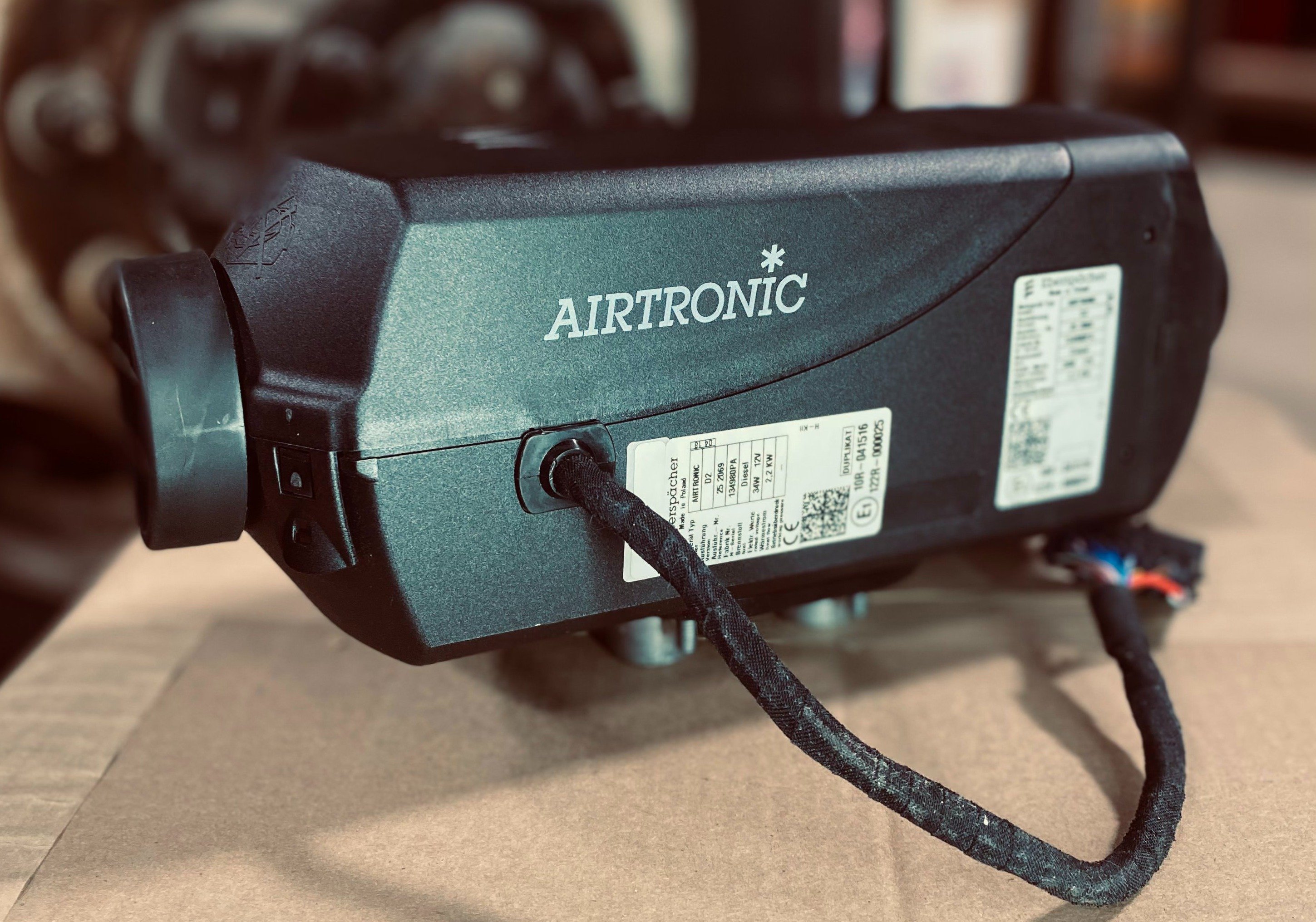Preparing Massachusetts Fleets for CARB standard enforcement: An interview with Kevin Weeks, Executive Director of the Trucking Association of Massachusetts
by Elayne Cronin, Ph.D. | Jul 28, 2021 | | 0 Comments
It is no secret that fleets in Massachusetts need to start preparing for air and climate regulations similar to those mandated by the California Air Resources Board. California has set air and climate programs that states like Massachusetts are set to adopt and enforce in the coming years. The Transportation and Climate Initiative (TCI) is just one example of emerging policy initiatives in the Northeast and Mid-Atlantic states.
I took some time to speak with Kevin Weeks, the executive director of the Trucking Association of Massachusetts (TAM), a not for profit 501c3 organization over one hundred years old that represents all kinds of trucking organizations from the largest national carriers to local mom and pop fleet owners and individual owner-operators. We talked about the implications of these regulations for fleets based in Massachusetts and the downsides of only associating carbon reduction with the deployment of full electric heavy duty trucks. The interview has been lightly edited for clarity.
Can you please describe TAM and your advocacy for trucking in Massachusetts?
TAM focuses mainly on Massachusetts. We do partner with states all throughout the country, especially neighboring states and are also affiliated with the American Truckers Association that goes to bat for us on the national level. But locally or throughout our state, we are focused on anything and everything that can impact our members and the trucking community in general. That may be from towing issues to congestion pricing, to the current issues around transportation climate initiative, and certainly issues that revolve around other climate initiatives pertaining to the California emission standards.
We have been very active advocating for the safety of trucking, the legitimacy of trucking and do our best to make sure people are aware that in the trucking community, especially in Massachusetts, that virtually everything that makes it to somebody's table or somebody's desk was on a truck at one time. And we always try to get that message across that trucking is a vitally important component of our economy in Massachusetts.
Can you describe how regulations similar to those mandated by CARB are taking shape in Massachusetts?
Massachusetts is, by statute, required to adopt the California emission standards or the general federal admission standards dictated by the EPA, whichever, one creates a greater reduction in emissions. So the California emission standards do just that. And they are more robust than the federal clean air act provisions. The goal is to reduce NOx, nitrogen oxides, and to also reduce PM emissions, which is particulate matter. The purpose is to continue to clean the air accordingly and ultimately move away from diesel fuel. Massachusetts is required to abide by that and will be enforcing that significantly more so in the coming years.
The Massachusetts DEP, the Department of Environmental Protection is tasked to implement these regulations. They need to implement that across the board on light duty trucks, medium duty trucks, and heavy-duty trucks with the goal, ultimately of creating what they call “ZEV vehicles, zero emission vehicles.” (Editor’s note: Most references to zero emissions vehicles are referring to vehicles that emit zero tail pipe emissions. However, to determine a vehicle’s true carbon footprint it’s important to factor in all emissions produced during manufacturing, driving, powering and disposing the vehicle over its entire lifecycle. Battery electric vehicles are not zero emission vehicles over an entire lifecycle.) As you might imagine, ZEV vehicles are easier to come by in the passenger world or smaller trucks, much more difficult to come by for medium duty and heavy-duty trucks.
What do fleet owners need to know about these regulations?
I think it will have a trickle-down effect before any of this happens in any real way, shape or form significantly in Massachusetts. But the genie is out of the bottle. So the industry does have to address that and pay attention to it.
For instance, in California, diesel truck sales will be banned completely in the year 2035. So literally in 14 years, you're not going to be able to purchase a diesel vehicle. It doesn't mean that diesel vehicles will not be operating in California, but you would not be able to purchase a diesel truck in California in 2035. Massachusetts is bound by statute to follow the California emission standards. But as far as timelines and all that sort of thing go, that is up to the Department of Environmental Protection to suggest where we go with those timelines.
We're already looking forward in 14 years to the possibility of not being able to buy diesel vehicles. And now, everybody seems to be ignoring the problems that come from electric medium and heavy-duty trucks. I am not just talking about the trucks themselves, but I also mean the ability to charge those trucks, how much it costs to create charging stations on and on and on. There needs to be infrastructure built across the country. And we don't have that right now. But what we do have right now is a significant amount of improvement in clean diesel technology. There’s been 99% a reduction in NOx and PM emissions over the last 20 plus years.
Full electric trucks will become affordable and the charging infrastructure will be built eventually. But right now it seems like we're going from A to Z. We're talking about Z so much we're forgetting what we can do with B, C, D, E, F, G which we can do right now. If you’re politician or whatever, it's way more sexy to be talking about zero emission vehicles and all that sort of stuff. But the reality is they need to be talking about clean air vehicles, no matter how we get there.
What do legislators in Massachusetts need to understand about how these regulations and the push towards all electric trucks impact fleets?
Massachusetts isn't a trucking friendly state. One of the things that we deal with in Massachusetts is sales and use tax charged (on truck purchases) in Massachusetts on any company that has a significant nexus in our state and operates in our state. So therefore anybody that operates a vehicle in our state is potentially liable to pay sales and use tax. And if they operate outside of our state, they're not. Massachusetts is one of only 13 states in the entire country that charges sales and use tax.
Quite frankly, in Massachusetts, many of the vehicles that operate here aren't the cleanest or safest trucks. We want them to be but if you're running a business and know that if you put your cleaner, newer, safer trucks in Massachusetts, it could cost you thousands and thousands of dollars per vehicle on sales and use tax. Well, it just doesn't make much business sense, does it?
So larger companies do their best to keep that equipment out of our state, which is really sad. We continually let our members know and the community know that regulations are coming though. Electric trucks will be affordable at some point. There are lots of incentives already that the state and the governor's office have put in place for heavy duty trucks. One of the incentives is a rebate from $7500 to $90,000. But it is still unrealistic for most fleets to purchase those trucks since the estimated price is double the price of a new clean diesel truck. So we need to address that in Massachusetts and get the cleanest and safest trucks into Massachusetts now. Those discussions are the ones we need to be having much sooner than full electric heavy-duty vehicles.
Our goal should be to make the air cleaner five years from now than it is today. Then make it cleaner five years after that. TAM is not trying to delay this. We're just trying to be realistic. When electric trucks are available and affordable, that's a discussion for another day, but we're not at that day. We're just not.
Thank you for reading. The good news is that if your fleet wants an affordable option to reduce fuel use, eliminate engine idling, and support your drivers' comfort, RelGen hybrid charging can be the right step to help you comply with regulations and reach a more sustainable future faster than anything else. RelGen offers fleets a one year return on investment in fuel savings alone!
Have a great day!
Most Popular
Categories
- RelGen (18)
- Anti-Idle (14)
- Charging Solutions (13)
- Battery Recharge (11)
- Electric APU (10)
- Liftgates (10)
- Preventative Maintenance (7)
- Voltage Loss (6)
- DC/DC converters (4)
- Driver Retention (4)
- Uptime (4)
- fuel savings (3)
- 48V (2)
- Blackburn Team (2)
- Solar Panels (2)
- Consulting (1)
- DOT compliance (1)
- Espar Airtronic D2 Diesel Fired Air Heater (1)
- Financing (1)
- Hardware as a Service (1)
- Power Wall (1)
- alternators (1)
- data (1)
Archives
- October 2020 (4)
- November 2020 (4)
- May 2020 (3)
- September 2020 (3)
- March 2021 (3)
- April 2021 (3)
- July 2020 (2)
- August 2020 (2)
- January 2021 (2)
- June 2020 (1)
- July 2021 (1)
- August 2021 (1)
- October 2021 (1)
- January 2022 (1)
- February 2022 (1)
- March 2022 (1)
- June 2022 (1)
- October 2022 (1)
- January 2024 (1)
- March 2024 (1)
- May 2024 (1)
- September 2024 (1)












